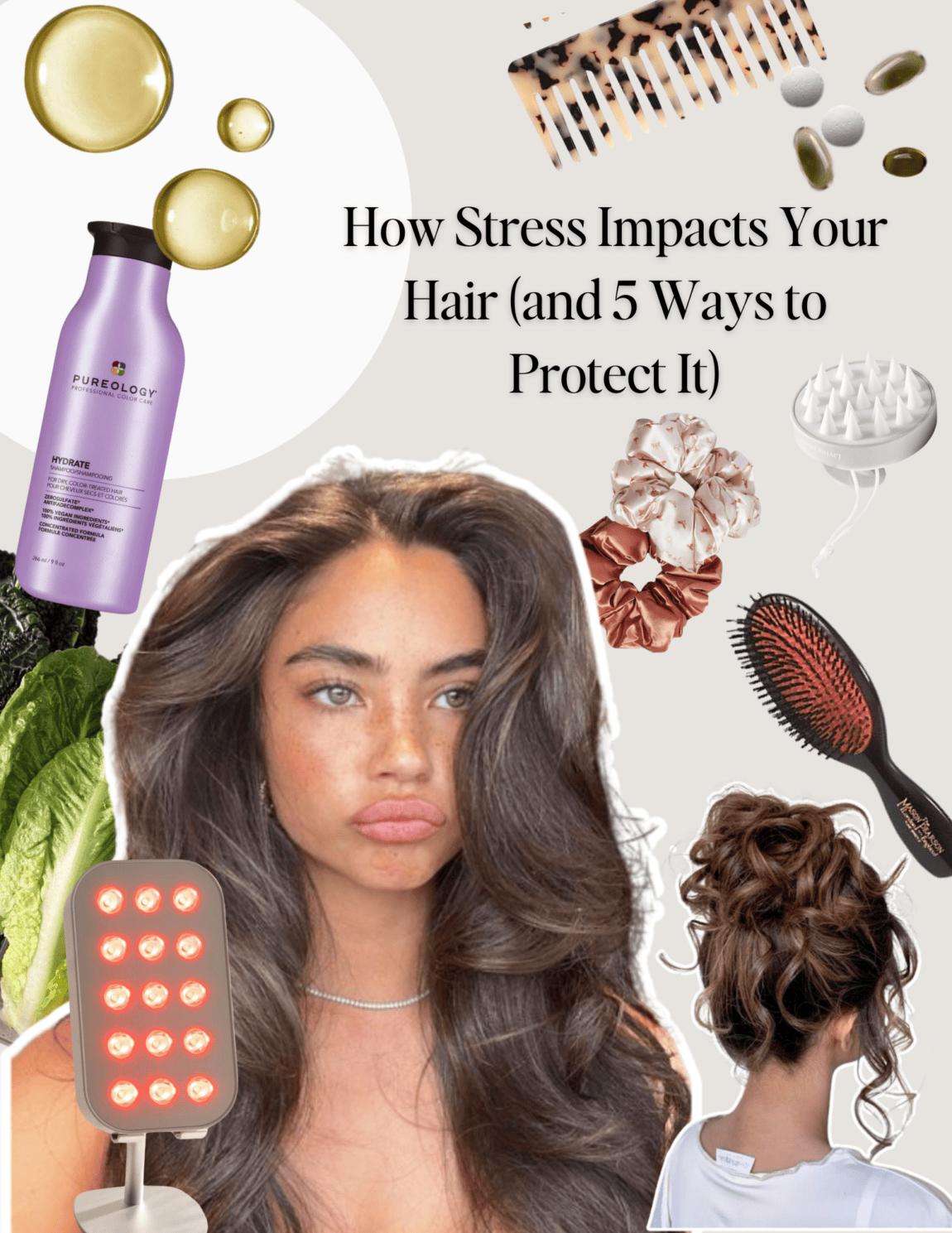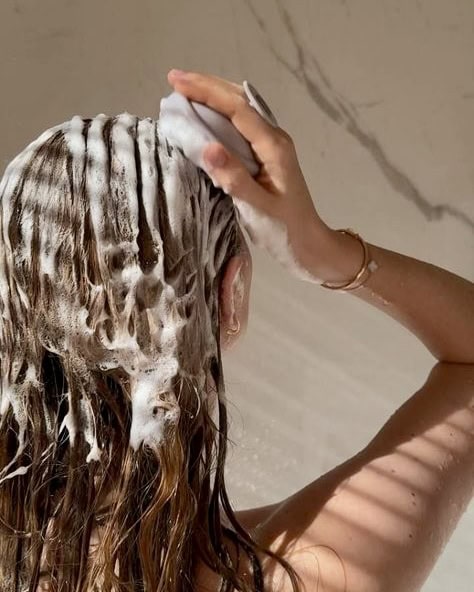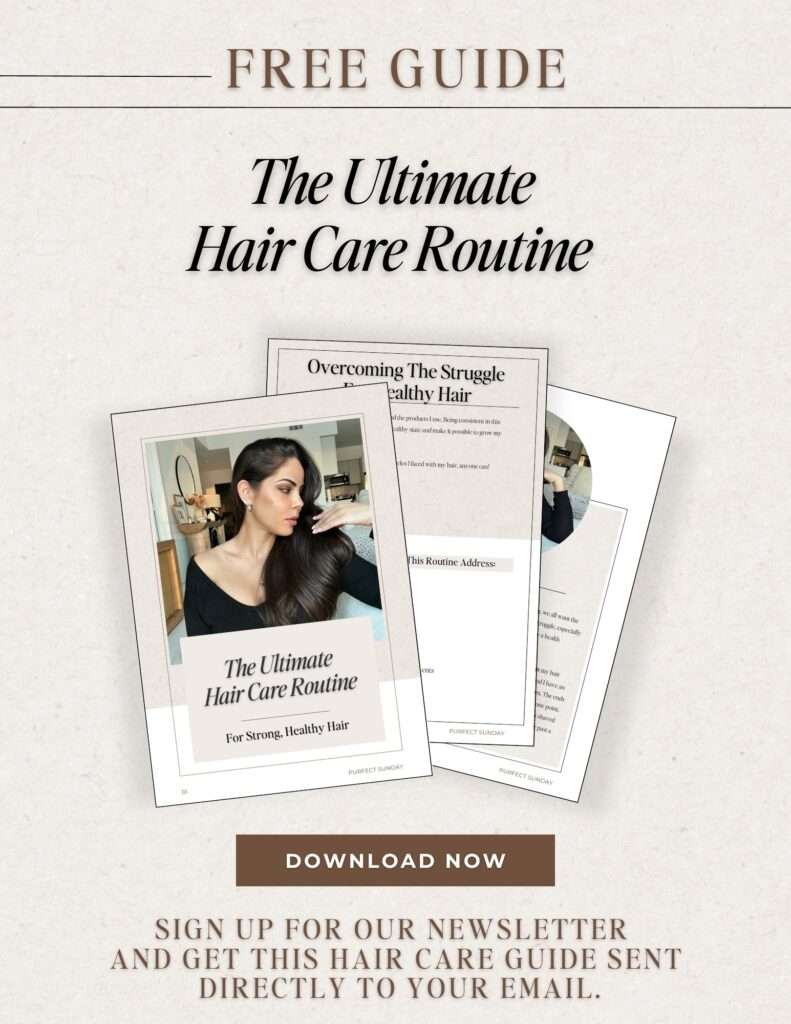
How Stress Impacts Your Hair (and 5 Ways to Protect It)
Stress affects every aspect of our lives, from our mental health to our physical well-being. One area you might not immediately think of is your hair. But if you’ve ever noticed increased shedding, thinning, or a lack of shine during stressful times, you’re not alone. Let’s explore how stress impacts your hair and share five wellness-focused strategies you can implement to protect and restore its health.
5 Ways to Protect Your Hair from Stress
While stress is a natural part of life, managing it effectively can help safeguard your hair. Here are five wellness-focused strategies to keep your hair strong and healthy.
The Connection Between Stress and Hair Health
When your body experiences stress, it triggers a chain reaction that can disrupt your hair’s growth cycle. Here are the primary ways stress impacts your hair:
- Telogen Effluvium: Acute stress can push hair follicles into the resting phase, leading to excessive shedding a few months later.
- Alopecia Areata: Chronic stress can trigger this autoimmune condition, where the immune system attacks hair follicles, causing bald patches.
- Hair Growth Disruption: Stress hormones like cortisol interfere with the nutrients and oxygen delivered to hair follicles, slowing growth and weakening strands.
- Scalp Health Issues: Stress can exacerbate conditions like dandruff, dryness, and itchiness, further impacting hair health.

1. Prioritize Scalp Care
Your scalp is the foundation for healthy hair growth, so always give it extra love and attention. Stress can lead to an imbalance in oil production, causing dryness or excessive greasiness. I like to do weekly oil treatments before I wash my hair. I let the oil stay on my scalp for a few hours or even overnight before washing it out. Other ways to care for you scalp:
- Using a gentle, sulfate-free shampoo (this one is my favorite) to cleanse without stripping moisture.
- Incorporating scalp massages into your routine to stimulate blood flow and relax tension.
- Trying soothing scalp treatments with natural ingredients like tea tree oil or aloe vera.
2. Nourish Your Body from Within
Your diet plays a significant role in hair health, especially during stressful periods. Focus on:
- Protein: Hair is primarily made of keratin, a protein. Include more high-protein foods in your meals.
- Vitamins and Minerals: Biotin, zinc, and vitamin D are crucial for hair growth—snack on nuts, seeds, and leafy greens.
- Hydration: Drink plenty of water to keep your scalp hydrated and hair strands strong.
3. Practice Mindful Relaxation Techniques
Living with chronic stress is unpleasant enough, but the way it can wreak havoc on your hair makes it even worse. Luckily, you can work on counteracting it with practices that lower cortisol levels, such as:
- Meditation: Spend 5-10 minutes daily focusing on your breath.
- Yoga: Combine movement and mindfulness to relieve tension.
- Journaling: Write down your thoughts and feelings to release stress.

4. Get Adequate Sleep
It’s called beauty sleep rest for a reason. Sleep is when your body repairs and regenerates, including your hair. Stress often disrupts sleep, creating a vicious cycle. I wrote a post on 10 Tips For A Better Night’s Sleep that you can read. But you can also start to protect your rest by:
- Establishing a consistent bedtime routine.
- Limiting screen time an hour before bed.
- Using calming essential oils like lavender to promote relaxation.
5. Be Gentle with Your Hair
We can be pretty rough on our hair without even thinking about it, but stress can make hair even more fragile, so handle it with care:
- Avoid tight hairstyles that pull on the scalp.
- Use a wide-tooth comb to detangle wet hair without causing breakage.
- Minimize heat styling and chemical treatments during stressful times.
Final Thoughts
Unfortunately, stress is an inevitable part of life, but it doesn’t have to take a toll on your hair. By focusing on scalp care, nutrition, sleep, and gentle hair practices, you can reduce how stress impacts your hair and protect and promote its health even during challenging times.
Remember, self-care is not just about looking good; it’s about feeling good, too. Take the time to nurture your mind, body, and soul—your hair will thank you.
What are your favorite ways to manage stress and care for your hair? Please share your tips in the comments below, and don’t forget to follow us for more wellness inspiration!
Xx Monti
Shop the Post


